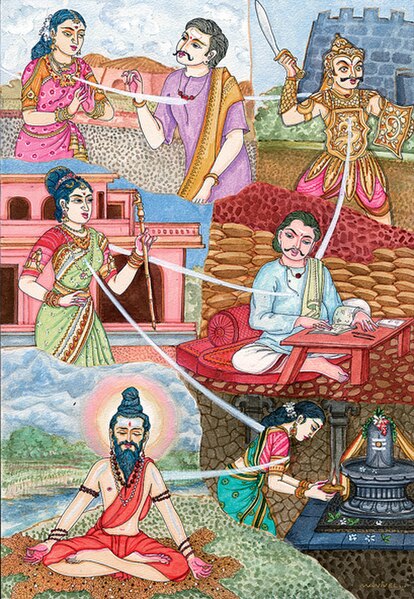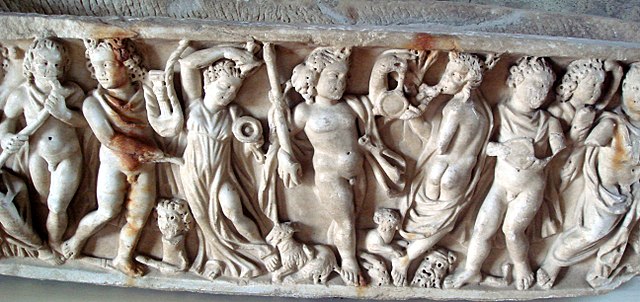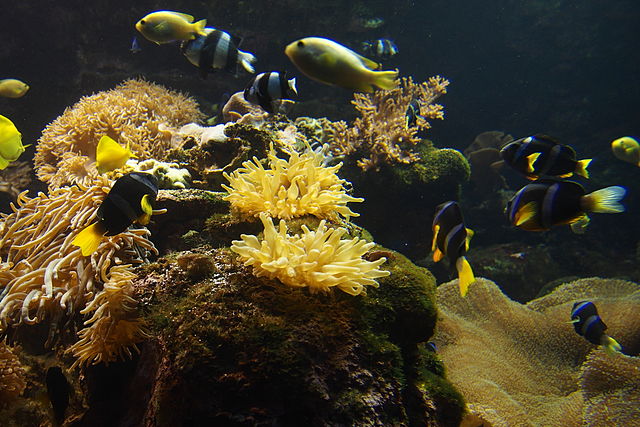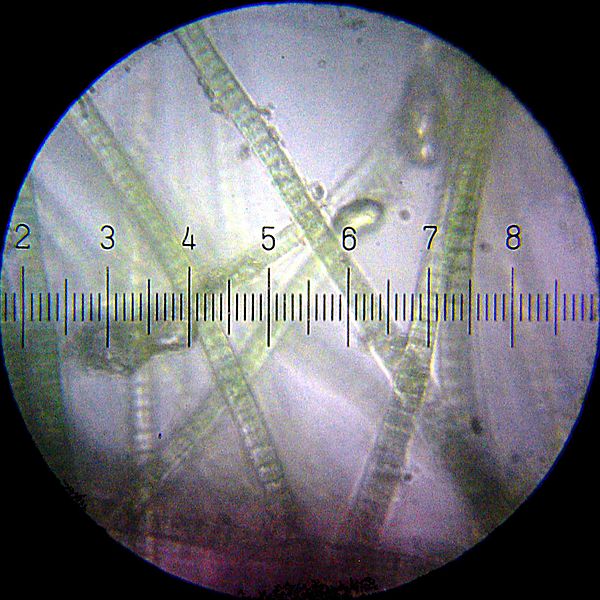Reincarnation, also known as rebirth or transmigration, is the philosophical or religious concept that the non-physical essence of a living being begins a new life in a different physical form or body after biological death. In most beliefs involving reincarnation, the soul of a human being is immortal and does not disperse after the physical body has perished. Upon death, the soul merely becomes transmigrated into a newborn baby or an animal to continue its immortality. The term transmigration means the passing of a soul from one body to another after death.
Illustration of reincarnation in Hindu art.
In Jainism, a soul travels to any one of the four states of existence after death depending on its karmas.
A second-century Roman sarcophagus shows the mythology and symbolism of the Orphic and Dionysiac Mystery schools. Orpheus plays his lyre to the left.
American psychologist and philosopher William James (1842–1910) was an early psychical researcher.
Life is a quality that distinguishes matter that has biological processes, such as signaling and self-sustaining processes, from matter that does not. It is defined descriptively by the capacity for homeostasis, organisation, metabolism, growth, adaptation, response to stimuli, and reproduction. All life over time eventually reaches a state of death and none is immortal. Many philosophical definitions of living systems have been proposed, such as self-organizing systems. Viruses in particular make definition difficult as they replicate only in host cells. Life exists all over the Earth in air, water, and soil, with many ecosystems forming the biosphere. Some of these are harsh environments occupied only by extremophiles.
Life
Animal corpses, like this African buffalo, are recycled by the ecosystem, providing energy and nutrients for living organisms.
Adenoviruses as seen under an electron microscope
Cyanobacteria dramatically changed the composition of life forms on Earth by leading to the near-extinction of oxygen-intolerant organisms.








